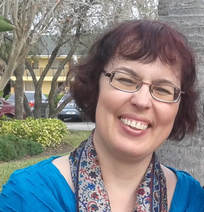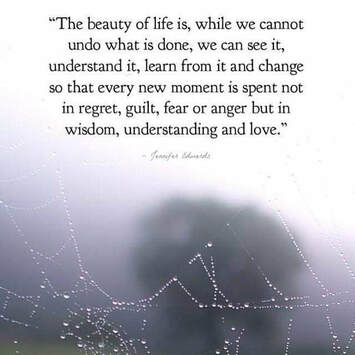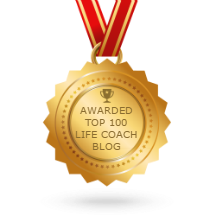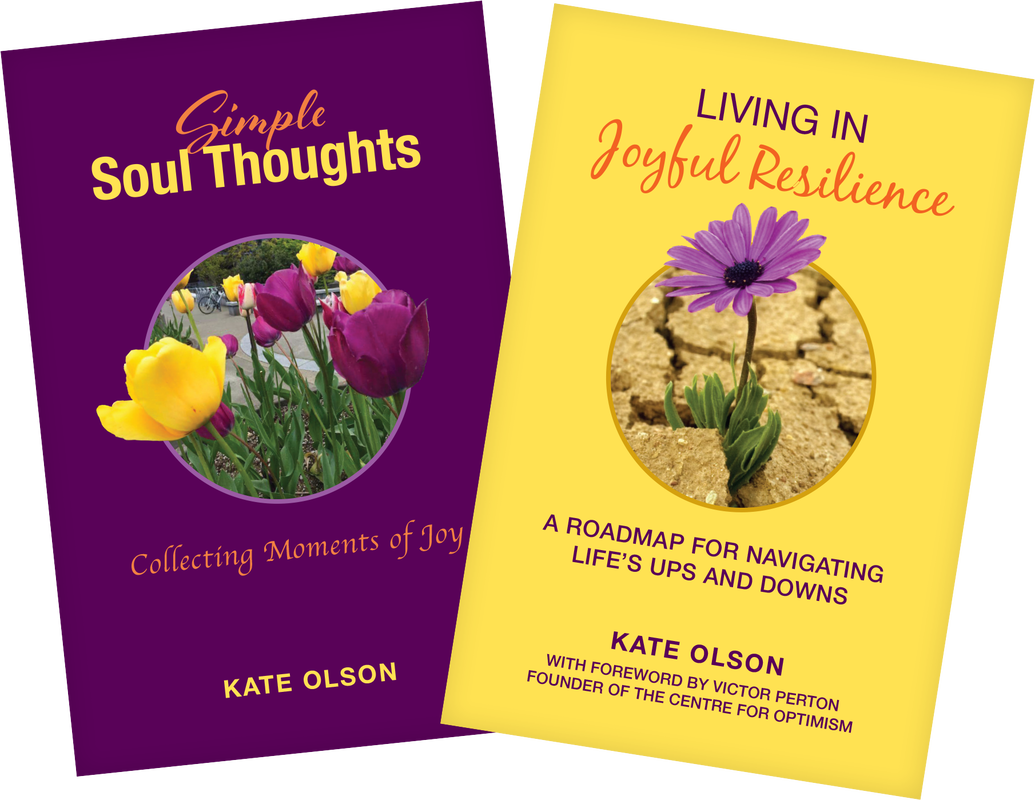 About the Author: Dr. Anna Margolina is a Master NLP practitioner, Licensed Trainer of NLP, hypnotherapist, scientist, Author & Speaker. She graduated from the Russian State Medical University in Moscow Russia in 1996. Anna has worked as a science editor and science writer for the Russian Cosmetics and Medicine Journal since 1997. She published a number of books in Russia on science-based skin care. Anna moved to Seattle in 2001. In 2009 while dealing with personal issues, she became interested in NLP and hypnosis and was certified in 2013. Currently, Anna is developing a program for women who want to look younger and more radiant using the power of their unconscious mind. www.agelesswithhypnosis.com How I realized I had a happy childhood. I was attending my first seminar with Dr Richard Bandler. You can imagine my excitement. I was in a presence of a living legend – a co-creator of Neuro-linguistic Programming. Probably the best part of NLP seminars is watching volunteers being brought on stage in various degrees of distress and misery. This time, Dr. Bandler selected a very prim and proper looking young man in a business suit with a red tie. I watched with fascination as this very serious-looking man started giggling and then laughing and beaming, as he was led into hypnosis from one pleasant, joyful memory to another. Those were not small reserved smiles! Oh, no! That man was glowing and glistening with delight! When Dr. Bandler finally had him face some disturbing events in his past, the man apparently couldn’t remember how bad it felt in the first place. His whole attitude changed. He didn’t even look the same! Then Dr. Bandler looked at the rest of us with a twinkle in his eyes and said, “Here is what I want you to do. Grab a partner and do with each other, what I just did on stage.” I raised my hand with a question. “Yes?” asked Dr. Bandler. “Dr. Bandler! I cannot do this exercise!” I said. “You said, ask them to remember a good memory, but I have no good memories. I didn’t have a happy childhood!” And with this, to my own astonishment, I broke into tears. Here I was, at the NLP seminar with Dr. Richard Bandler, bawling my eyes out, sniffling, my shoulders shaking, making a spectacle of myself. No, I didn’t want to go into my past. I locked that door. How could he not see that I couldn’t bear facing my pain, my fears, my struggles. Just one memory, which immediately popped into my mind, brought a waterfall of tears. That, alone was enough to ban time travels. In this memory I was in a school yard, looking at three bullies, who were laughing and pointing at me, as I tried to say something in my defense. The problem was, I couldn’t, because I stuttered so badly, all I could do is to struggle and stomp my feet and clench my fists, which apparently was hilarious. It is hard for me to imagine that at this point I truly believed that I had a terrible childhood and didn’t have even a glimpse of joy. Intellectually, I knew I must have had some good things happen to me, but I also knew there were experiences I didn’t want to revisit. It is so hard for me to imagine that time when I didn’t know that our past could be changed, re-invented, re-experienced, re-evaluated and re-enjoyed. As Dr. Bandler likes to say – it is never too late to have a happy childhood. In order to change the past, we first need to find the original recording or memory of the event. Not the later narration or rationalization. I mean the original sensory experience. Whatever experiences you were sensing with your eyes, ears, nose, skin, taste buds, olfactory sensors, and whatever was felt and experienced in the moment as the event unfolded. This can be done through various hypnotic techniques, such as the affect bridge, timelines or various metaphors. In the affect bridge technique, a person is asked to travel from the most recent event, that caused a particular emotion, to more and more recent events linked by the same emotion. I see in my mind such events as islands, connected to similar islands through bridges. Each bridge is made from a certain emotion. You can imagine walking from one island to another way into the past, until you reach the very first episode, where this emotion was first experienced. In the timeline technique, you imagine your life as a road. You either walk back into your future, or you float above the timeline, until you find this first event. Some metaphorical techniques include turning pages of the book of your life, walking through the long hallway with many doors leading into your past events, walking down the spiral staircase from one memory to another etc. Whatever technique is chosen, it has to accomplish one important task – revivifying the original sensory experience. It is a good practice to teach a person (or yourself) to step out of the sensory experience into the observer position, if the emotion becomes overwhelming. When you realize that you can always reduce the intensity of a feeling by stepping out of the sensory experience into a more detached viewing point, emotional time travel becomes much easier. It is important to treat this past event as if it is happening now, in a sense it is. Always use the present tense, when talking about the event. Our brain is not that good at distinguishing real events from vividly imagined or remembered events. Whatever we imagine, affects our feelings and even our mind and body, as is it is happening now. However, the power of the hypnotic time travel is that we can make changes. For example, what will happen if a person reexperience the memory, while having a different neurochemistry? What will happen if this person is given new knowledge to help form new, more up-to-date, more functional and more useful beliefs about the event? This is exactly what Dr. Bandler did for that young man on the stage in his example. He made the young man laugh and he led him through a sequence of delightful, pleasant memories, which saturated his body with feel-good neurochemistry. The curious thing about neurochemicals is that it takes a while to make them and reach the point of saturation, but once you accomplished this, it also takes a while to flush them out of the body. When we look at the same traumatic experience from a much more resourceful state, with much more knowledge and much more life experience, we can find new ways to respond.
I was back in the school yard, looking at my tormentors. Only now, I was looking at this experience from a more resourceful state. I knew I survived. I knew, that eventually I graduated from the Russian Medical University, got my Ph.D., moved to the U.S., studied hypnosis and developed a fascination for the powers of the human mind. I felt strong and I felt compassion for myself and even for those three boys, who couldn’t feel compassion because nobody taught them how to feel it. No one had probably shown them any compassion. I felt proud of that young girl who had such a challenging condition and was able to accomplish so much! Pride and compassion will give you a pretty good dose of neurochemistry! What if you add a splash of gratitude, a touch of joy and a generous dose of unconditional love? Hey, it is your brain, you can do anything you want in hypnosis! And as if the door opened and was flooded with luminous light, a flow of memories – not pain, but of joyful shenanigans and fun adventures – took over and spread all over my timeline. I did have a happy childhood! How could I ever believe that I was a miserable child? Now, looking back, I feel horrified that I could live my entire life being afraid to open the door into my past. I feel so relieved that I escaped the sad fate of carrying baggage full of painful memories and miserable emotions into every relationship. It is very unfortunate that so many classically trained therapists still believe that it is important to make a client relive their most painful experiences again and again in order to get insight and understanding. From what we know now, from modern studies in Neuroscience, all it does is to create less resourceful states and saturate the body with even more stress and pain inducing neurochemicals. It is very difficult to gain new insights if we look at the same memory with exactly the same internal states and from the same perspective. NLP and hypnosis do away with that painful reliving of painful memories. Once you change the neurochemistry of the memory, it will never be the same. We don’t like hearing the same joke. So why reexperience the same pain? Would you like to discover how you too can now have a happy childhood? Would you like to find out how much fun and pleasure you can remember, reexperience and reclaim and dig out your good memory treasure chest? As Dr. Bandler likes to say, there is delight at the end of the tunnel. And when we start thinking, instead of remembering, when we start using our brains with purpose, when we fully decide to take control of our thought process, we can leave behind the darkness of misery and fall in love with every moment of our beautiful and delightful life.
0 Comments
|
Blog By Kate Olson Kate is a Hypnotherapist, NLP Practitioner & Trainer, Reiki Master, Energy Healer, Life Coach and more. To find out more about her or her work, click the links below:
Get Kate's Book & Journal!
Living in Joyful Resilience: A Roadmap for Navigating Life's Ups & Downs & Simple Soul Thoughts : Collecting Moments of Joy www.joyfulkate.com About the Blog After 4 years of featuring at least 1 guest Author a month this blog changed in 2020. I loved featuring the posts of other great people who also believe in mind, body, spirit wellness. I will continue to feature articles submitted to me on this topic that align with my own mission. However, finding & reaching out to others is time consuming and I do it for my radio show, Soul Talks and other groups and projects and so for this blog i will be ramping up my own posts and perspective. posting mostly my own blogs. I will be happy & excited to post articles from those who submit them to me. Archives
April 2022
Categories |
Proudly powered by Weebly






 RSS Feed
RSS Feed